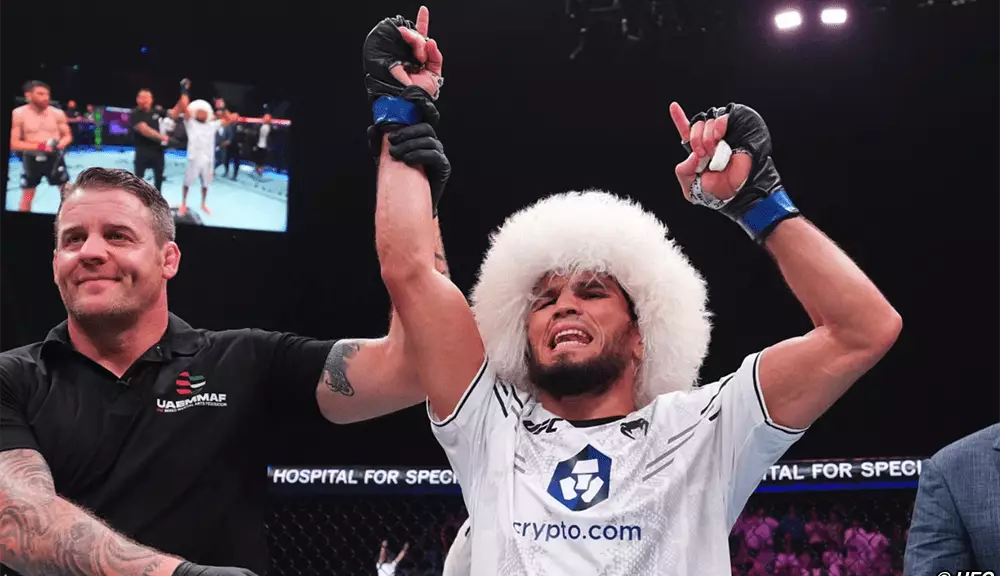In the ever-evolving world of mixed martial arts (MMA), certain names resonate more than others. One such name is Umar Nurmagomedov, who is preparing to step into the UFC 311 arena to challenge the reigning bantamweight champion, Merab Dvalishvili. With an impressive record of 18 wins and no losses in MMA, including six victories in the UFC, Umar stands at the precipice of a significant milestone in his burgeoning career. This co-main event is not just another match for the fighter; it’s a chance to carve his name in the annals of UFC history alongside his esteemed family legacy.
Umar is not just fighting for personal glory; he also carries the weight of a family legacy that is hard to match. With UFC Hall of Famer Khabib Nurmagomedov as a cousin and mentor, Umar is well aware of the monumental expectations that come with his last name. Yet, rather than succumbing to pressure, he embraces it, stating, “We know how we’re ready. I don’t feel pressure.” This nonchalant confidence reflects the hours of training and preparation he has undergone, not only to maintain the family name but to establish himself as a force in his own right.
Umar’s journey has the unique advantage of having a well-trodden path forged by Khabib, who showcased not only skill but also the importance of discipline and mental fortitude in the sport. With each fight, Umar has been able to learn and adapt, modeling several aspects of his game after Khabib’s success while also infusing his unique style into his technique.
A Cohesive Team Environment
The significance of team dynamics in combat sports cannot be overstated, and Umar’s situation is no different. Alongside him is his training partner, UFC lightweight champion Islam Makhachev, who headlines UFC 311 in a critical rematch against Arman Tsarukyan. Moreover, the excitement continues as Umar’s brother, Usman Nurmagomedov, prepares to defend his Bellator title shortly after. The collective narrative surrounding this family of fighters is rich and promising, as they not only aspire to build individual legacies but also aim to elevate their family name.
Umar reflects on this captivating period, expressing pride in what this means for their legacy, emphasizing, “When we will become older, we’re going to tell our kids do you know your father was fighting for the title?” He visualizes a future where their achievements become a source of inspiration for the next generation—a hallmark of true legacy.
As the clock ticks down toward the bout against Dvalishvili, anticipation builds, not solely for the outcome, but for what it signifies in the larger landscape of MMA. A win for Umar could solidify him as not just a future champion, but one of the sport’s defining figures in the years to come. His family’s legacy intertwined with his own aspirations sets the stage for not only personal success but a broadening of the Nurmagomedov influence in the sport.
Ultimately, the legacies of champions are often measured not just by titles won, but by the spirit they instill in others. Umar Nurmagomedov is at the forefront of a transformative chapter, and UFC 311 represents not just a fight but a defining moment in the complex tapestry of MMA history.

